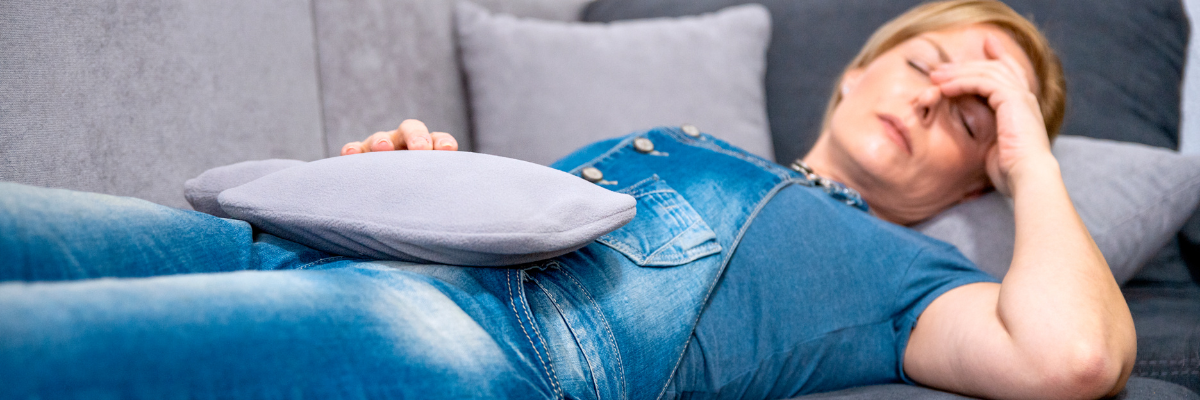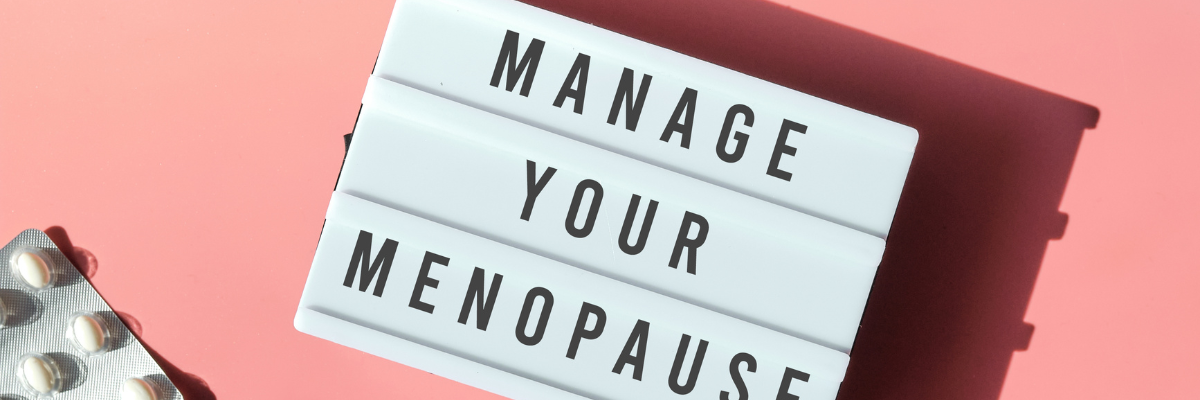Written by: Dr Jennifer Ellenbogen
Menopause: what is it?
So, menopause is a natural part of a woman’s life and typically occurs around the ages of 45-55. It’s the time when a woman’s ovaries stop producing as much oestrogen and progesterone, which are the two main hormones involved in the female reproductive system. As a result, women stop having their period for 12 consecutive months, marking the official start of menopause. It’s a big change in a woman’s body, but it’s completely natural and nothing to be afraid of.

Menopause and perimenopause can cause symptoms like anxiety, mood swings, brain fog, hot flushes and irregular periods.
Early menopause vs. primary ovarian insufficiency
Did you know that menopause can sometimes happen earlier than expected? This is called early menopause and it happens when a woman’s periods stop between the ages of 40 and 45. While this isn’t super common, there’s an even less common condition called primary ovarian insufficiency, which refers to women who go through menopause before the age of 40. It only affects about 1% of the population, so it’s pretty rare. But it’s important to be aware of these conditions in case you or someone you know experiences early menopause.
What are the causes of early menopause?
There are two main reasons: follicle depletion and follicle dysfunction. Essentially, these conditions mean that the eggs in a woman’s ovaries don’t mature and are not released. As a result, women stop having periods and go through menopause.
The causes of this are due to:
How do I know if I’m going through early menopause?
Well, they’re actually the same as the symptoms of regular menopause. This can include things like irregular periods, no periods, hot flushes, night sweats, vaginal dryness, changes in mood, anxiety and irritability, low sex drive, and poor memory. However, it’s important to note that there are many other reasons why you might be experiencing these symptoms. For example, stress, pregnancy, illness, changes in weight, and medication can all cause similar symptoms.
What should I do if I think I may be going through early menopause?
If you think you might be experiencing early menopause, the best thing to do is to contact your GP. They will be able to make a diagnosis based on your symptoms, your past medical history, family history, and a blood test that includes a hormone profile. If necessary, they can also refer you to a specialist for further evaluation and treatment.
Why should I care if I am going through early menopause?
For one, low oestrogen levels can lead to bone loss and increase your risk of conditions like osteopenia and osteoporosis. This is why it’s important to get early treatment – it can help prevent bone damage and keep you healthy.

Home blood test to assess all the key female hormones to provide a good overview of a woman’s hormonal health.
Additionally, early menopause can increase your risk of cardiovascular disease, so early treatment can also help avoid that.
And finally, early menopause can affect a woman’s fertility, so the quicker the diagnosis and treatment, the better.
Treatment of early menopause

Speak to a GP in seconds. Instant telephone and video calls. No stress and no waiting. A service you can rely on – 24/7.
If you’re going through early menopause, don’t worry, there are plenty of treatment options available! For one, your GP can help you replace the hormones that your body is no longer producing, using combined contraceptive pills or hormone replacement therapy (HRT). Additionally, there are plenty of lifestyle changes you can make to reduce your symptoms, like taking calcium and vitamin D supplements and changing your diet to prevent osteoporosis. And if you’re struggling with mood changes or other emotional challenges, talking therapies and support groups can be really helpful. Finally, if you’re having difficulty with fertility, your GP can help you with that too. So, if you’re going through early menopause, don’t hesitate to reach out for support and treatment.

